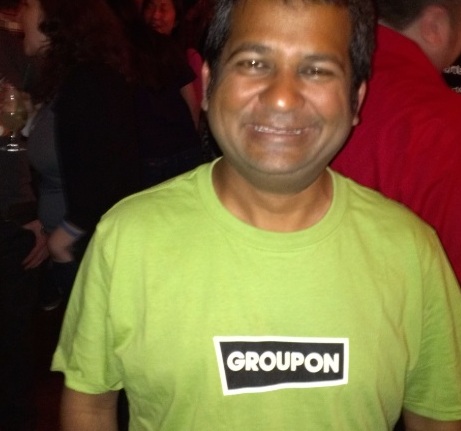
Sometimes, there’s just little that’s positive to say. (Disclosure: I have various puts and wagers against Groupon.) To me, debating whether Groupon is a good company is the equivalent of debating where Obama was born. The overwhelming evidence is that Groupon is a bad company. And that’s what I write.
[aditude-amp id="flyingcarpet" targeting='{"env":"staging","page_type":"article","post_id":512228,"post_type":"guest","post_chan":"none","tags":null,"ai":false,"category":"none","all_categories":"business,","session":"D"}']That doesn’t mean that everything that Groupon does is bad. I’ve written positive things about Groupon when warranted. Groupon’s payments product, for example, might be a real threat to Square if it chooses to invest in it. Groupon Goods is actually a pretty good product. It doesn’t sell what I’m interested in, but that’s not a big deal — neither does Tiffany. It will make money selling Goods to people who choose to buy them. The problem, from a market perspective, is that investors thought they bought a Ferrari, and Goods is the equivalent of a Ford Focus.
People have also asked if I have an agenda: I do. I’ve been clear about that from the beginning. My goal has been to promote the creation of products for small businesses that benefit them, not exploit them. A core belief for me is that you should succeed by doing good, not by tricking people into buying products that are bad for them. In way too many cases, Groupons are sold to businesses that are ill-suited for them. There are some cases when it makes sense to run a Groupon, and I’ve written about those, too. I’ve also published a how-to guide for merchants that allows them to best make use of a Groupon promotion. I’ve defended Groupon in cases where it was clear the merchant was at fault.
AI Weekly
The must-read newsletter for AI and Big Data industry written by Khari Johnson, Kyle Wiggers, and Seth Colaner.
Included with VentureBeat Insider and VentureBeat VIP memberships.
If Groupon does something positive, I will write about it. I’ve even tried to find positive stories to write about Groupon:
- When Groupon Getaways launched, I bought a Getaway to a hotel that I really liked and had stayed at before. The price was good (but not fantastic). I figured that it would be an easy positive story to write. I spent $500 of my own money trying to prove that Groupon Getaways was a good product. It wasn’t. This happened.
- When Groupon released its roadshow video, it featured a merchant in Louisville, Kentucky, on a slide labeled “Seviche loves Groupon”. I figured that Groupon would feature a business that would rave about it; again, an easy positive story. (If I were CEO of a company about to go public, I would personally call the merchant I was talking about to ensure they had a good experience.) I called Seviche and asked about their experience. They didn’t talk to me, but they told Reuters’ Alistair Barr that they didn’t love Groupon anymore.
- Just yesterday, a consumer wrote to me about a bad experience with Groupon. A hotel that the customer booked wasn’t available on the desired dates. The customer wanted the $1,200 back in cash. Groupon only offered credit in Groupon Bucks. I emailed a Groupon spokeswoman, who had the problem fixed in minutes. I planned to write a piece on their responsiveness. I followed up to ask what the policy was and didn’t receive a reply. So if I write about that, the story will say what a former customer service rep told me — that Groupon deliberately encourages its staff to give credit in Groupon Bucks and makes it hard to refund to a credit card.
I write positive things about a lot of companies. Just ask Virgin America, HotelTonight, American Express, eBay, car2go or GoPago. I even talked about how much I liked daily deal site LivingSocial’s new events space.
But I’m not going to make up positive things out of the blue. (It’s funny that when I write positive things, no one asks me to write negative things for “balance.”) My stories about Virgin America are about as lopsided to the positive as my Groupon stories are to the negative. That’s because they have an exceptional product that I think many companies can learn from. But when they screw up, I write about that, like when Virgin America had problems switching to its new reservation system. (For the record, I either pay for my travel, use miles, or bill it to a client.)
One of the problems I see too often in media is the desire to seek two sides on every story. Sometimes there’s only one side. Sometimes there are five or more sides. Seeking two sides results in fake balance and distorts the reality. If 80 out of 100 merchants have a bad experience with Groupon, it fundamentally distorts the truth to quote one merchant who had a good experience and one who had a bad experience.
I’m seeking truth, not balance.
VentureBeat's mission is to be a digital town square for technical decision-makers to gain knowledge about transformative enterprise technology and transact. Learn More